13 Nights / 14 Days
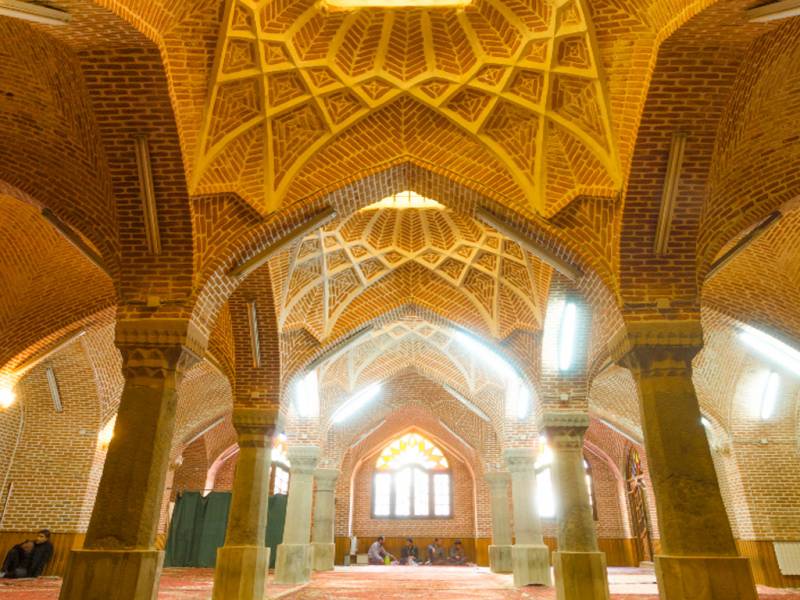
The items you need to carry on this trip include the following items:
Suitable shoes for walking
Sunhat & sunglasses
The medications you need
Personal items required
And a big smile on your face
We kindly congratulate you upon your delicate choice! Right on your arrival, we will pick you up at Tabriz International Airport and transfer you to your hotel. Prior to anything, you will be given the itinerary of the tour in a Welcome Meeting at 9:00 AM after your check-in. In case of unavailability of a flight that arrives on time, you may wish to arrive a day earlier so you can follow the plan. We will be happy to announce that one of our many services is to book an additional accommodation for you (subject to availability).
O/N in Tabriz / Hotel
After breakfast, we’ll visit Azerbaijan The museum which is the major archaeological and historical museum in Tabriz. It was established in April 1958. The museum consists of three major halls, a side yard, office rooms and a library. It mostly contains objects discovered from excavations in Iranian Azerbaijan, also some artworks and sculptures of artists. Its library contains more than 2,500 books, both handwritten and printed, about history, archaeology, art and Iranian culture. Apart from National Museum of Iran in Tehran, Azerbaijan Museum has the largest collection belonging to different periods of Iran’s history. Our next visit will be the Blue Mosque built in 1465 by Shah Jahan. The mosque was severely damaged in an earthquake in 1779, leaving only the entrance iwan. Reconstruction began in 1973. However, the tiling is still incomplete. Our next stop will be the Iron Age Museum situated under the several sediments and geological strata from the floor of the existing mosque. Among the 38 graves of Iron Age, mummies of two couples and their belongings were found and those have been kept at the Azerbaijan Museum. Then we will visit Arg-e Ali Shah a huge brick edifice, a landmark and it is remnants of a big unfinished 14th-century mausoleum and a 19th century military compound at the city center of Tabriz. Our last stop will be El Goli Safavid site and park with a beautifully renovated old building surrounded by a large pool.
O/N in Tabriz / Hotel
Distance from Tabriz to Zanjan: 298 km (3 h 30 min)
After breakfast, we’ll see the famous Constitution House of Tabriz which is a historical edifice located next to the Great Bazaar of Tabriz. During the years which led to the Constitutional Revolution and afterward the house was used as a gathering place of the leaders, activists, and sympathizers of the movement. Among them, the most famous people were Sattar Khan, Bagher Khan. The two-story building was constructed in 1868. It has numerous rooms and halls. The most beautiful part of the house is a skylight and corridor decorated with colorful glasses and mirrors. Our guide will lead us through the wonderfully constructed Tabriz Bazaar, second oldest in the world (after the one in Aleppo, Syria) which is another UNESCO World Heritage Site. Drive to Zanjan.
O/N in Zanjan / Hotel
Distance from Zanjan to Tehran: 333 km (4 h 5 min)
Before leaving Zanjan, we will visit the unique Rakhtshooy-khaneh (old public laundry now turned into an ethnographic museum) and the old Public Bath House which is a traditional Qajar Era laundry house and is today the Zanjan Museum of Anthropology. This place was used for washing clothes by women around the city. At the present, this historic building is being used as Zanjan anthropological Museum. In route back to Tehran (4-hour drive) we will visit the magnificent XIV Century Gonbad-e-Soltaniyeh, the tomb/tower of Uljaytu, the last Mongol/Il-Khanid Ruler of Iran (1304-1330). The monument is remarkable in many different architectural aspects, including its huge dome, which is about 167 feet high and ranks amongst the largest domes in the world. Gonbad-e-Soltaniyeh is one of 13 UNESCO World Heritage sites in Iran. Arrive in Tehran.
O/N in Tehran / Hotel
After you enjoy a great buffet breakfast and leave the hotel, enjoy a full day guided tour of Tehran. First, we will visit. The Archaeological Museum: A must-see in Tehran. The collection includes pottery, ceramics, stone figures and carvings from IV & V Millennium B.C. Four tablets inscribed in cuneiform, Darius I inscription, carved staircase, tiles from Apadana Palace, and salt man are some of the highlights. Later, we will explore The National Jewels Museum: The treasury of Iranian national royal jewels accommodates the world’s most precious jewelry collection. The Treasury has an interesting history, going back centuries. The Glassware and Ceramic The museum would be our last stop before lunch. The premises have been turned into a museum where glass and clay works are on display and were built about 90 years ago. The building is a combination of the traditional Iranian style and the European architecture of the XIX Century. The collection of glass and clay works that are on display at the museum is among the rarest in Iran and it includes clay pots dating back the IV Millennium B.C. up to the present time, as well as glass works from the 1st millennium BC up to the ontemporary era. European glass works from the XVIII & XIX Centuries are also part of the collection. In the afternoon, we will visit a UNESCO World Heritage Site: Golestan Palace. The lavish Golestan Palace is a masterpiece of the Qajar Era, embodying the successful integration of earlier Persian crafts and architecture with Western influences. The walled Palace, one of the oldest groups of buildings in Tehran, became the seat of government of the Qajar Family, which came into power in 1779 and made Tehran the capital of the country. Built around a garden featuring pools as well as planted areas, the Palace’s most characteristic features and rich ornaments date from the XIX Century. It became
a center of Qajari Arts and architecture of which it is an outstanding example and has remained a source of inspiration for Iranian artists and architects to this day. It represents a new style incorporating traditional Persian arts and crafts and elements of XVIII Century architecture and technology.
O/N in Tehran / Hotel
Distance from Tehran to Shiraz: 920 km (1 h 10 min)
After breakfast, we will visit the Carpet Museum with its beautiful modern architecture and a facade resembling a
carpet-weaving loom. Founded in 1978 the museum provides a historical background for the evolution of this art form.Transfer to the airport and a short flight to Shiraz. Shiraz is crowned as the heartland of Persian culture and this city of sophistication will never fail to conjure up images of roses and nightingales, gardens and poetry.This gorgeous city in the Province of Fars is home to famous poets such as Hafez and Sa’adi. Also, historical sites from different eras stretching back 6,000 years ago can be found here. Relish in the highlights of Shiraz when it was the capital of Iran during the Zand Dynasty. Be inspired by the glorious Karim Khan Palace, the splendid Vakil Mosque, Vakil Bazaar and Saray-e-Moshir with its splendid architecture and interesting ethnic souvenir shops and Nasir Almolk mosque. Next, we will stop for a mouth-watering Iranian lunch at one of the traditional restaurants of Shiraz. In the evening, we will visit Ali Ibn Hamzeh and be prepared to marvel at its beauties. Take a stroll through the Jahan Nama Garden and witness its tall and proud cedars. Not forgetting the two famous Persian poets, Hafez and Sa’adi, whose mysterious poems are everlasting in the Persian language, we will get a chance to pay homage to their tombs. Finally, visit the Delgosha Garden and Khajoy-e-Kermani tomb from where the perspective of the mysterious city of Shiraz will perpetuate in our mind. At night have dinner in a restaurant with the specific atmosphere in the north of Shiraz.
O/N in Shiraz / Hotel
Get ready for a truly wonderful day! After breakfast, we’ll drive about 35 miles to Takht-e-Jamshid or as the Greeks called it, Persepolis, a ruined capital of ancient Iran. It is one of the greatest artistic legacies of the ancient world and perhaps one of the most beautiful and spectacular archaeological sites surviving today. In the VI Century B.C., the Achaemenian King Darius I created Persepolis as a palatial precinct for an empire which eventually became larger and more efficiently ruled than any other in the ancient world. Persepolis was reserved only for ritual celebrations. In the spring of each new year, on Nowruz, the Zoroastrian observance of the beginning of Spring, March 21st, the dynamic ruler and his court gathered at Persepolis to receive the tribute of subject nations and to reestablish universal order for the coming year. Nowruz is still celebrated today. Step back in time as we enter through the Gate of All Nations. The arrival of the erstwhile delegations was announced by trumpeters who stood at the top of the staircase in front of the Gate of Nations. They were then led to the Hundred-Column Palace to the presence of the king.
Superb bas-reliefs depict the flow of ritual processions that once passed through the palaces and audience halls of the Achaemenian Kings. We’ll explore the Gate of Xerxes, the Apadana Palace, the Treasury, the Harem and the private palaces of the different rulers. Persepolis was completed by Xerxes and Artaxerxes I who ruled Persia in the V Century B.C. The palaces were used by the Achaemenid kings up until they were destroyed by Alexander the Great in 330 B.C. as revenge for the sacking of Athens during the Persian Wars with the Greeks. To top off the afternoon, visit Naghsh-é-Rostam, which contains the rock-carved chambers of four Achaemenian tombs, believed to be those of Darius the Great, Xerxes, Artaxerxes and Darius II. The ornamental facades are rock reliefs from the
Sassanian dynasty depicting various scenes of imperial conquests as well as a probable fire temple from Achaemenian times.
O/N in Shiraz / Hotel
Distance from Shiraz To Yazd: 441 km (5 h 12 min)
Today we say goodbye to Shiraz and embark on our journey to Yazd, stopping en route to Pasargadae – another UNESCO World Heritage site. Pasargadae was the first dynastic capital of the Achaemenid Empire, founded by Cyrus all the Great in the VI Century B.C.
Its palaces, gardens and the mausoleum of Cyrus are outstanding examples of the first phase of royal Achaemenid art and architecture and exceptional testimonies of Persian civilization. Particularly noteworthy vestiges include the Mausoleum of Cyrus ll; Tall-e-Takht, a fortified terrace; and a royal ensemble of the gatehouse, audience hall, residential palace and gardens. Pasargadae was the capital of the first great multicultural empire in Western Asia. Spanning the Eastern Mediterranean and Egypt to the Indus River, it is considered to be the first empire that respected the cultural diversity of its different peoples. This was reflected in Achaemenid architecture, a synthetic representation of different cultures. After a leisurely visit to Pasargadae, you continue on through the desert to the city of Yazd. Upon arrival, we’ll have an evening stroll through Fahadan Historical Neighborhood and Amir Chakhmagh Square.
O/N in Yazd / Hotel
After breakfast, we will explore the city of Yazd. Visit the Towers of Silence and the Fire Temple and adjoining museum, to learn about the Zoroastrian faith, their holy book – the Avesta, four divine elements – air, water, earth and fire, and motto – good thoughts, good words, good deeds! Next, at the Yazd Water Museum, we learn about the construction of Qanats which are underground tunnels or subterranean aqueducts carrying life-giving water from the mountains to the homes, Persian gardens, fields, orchards, pomegranate groves. You’ll admire their courageous builders using techniques developed from the fourth century B.C., and explore a house with its own Qanat system in place. There are enough Qanats in Iran the distance from which to go the moon and back four times! Walk through the Friday Mosque and see more of the crafts of the area. Visit Alexander Prison and learn about the famous “Badgirs” or wind-catchers water towers that efficiently cool a home in a desert setting. We’ll have a look at the area’s famed handicrafts – carpets, ceramics, and textiles. You’ll find silk Ikats and Termeh – a traditional hand-made cloth woven with precious threads and metals. Textile design spread from Persia to Moghul, India.
O/N in Yazd / Hotel
Distance from Yazd to Isfahan: 323 km (3 h 56 min)
This morning, we continue to Esfahan. We’ll make stops along our journey to visit the early Islamic period Friday Mosque in the city of Na’in. We will continue our drive to the beautiful city of Esfahan (Isfahan), the XVII Century capital of the Safavids, referred to as “Nesf-e-Jahan” (Half of the World) in Safavid sources. We’ll stay for three nights at the exotic Abbasi Hotel which was built in the 1960’s on the site of an XVII Century Caravanserai. Dinner and overnight in Esfahan.
O/N in Isfahan / Hotel
Today is another full day of sightseeing in wonderful Esfahan. Wander through the antique Friday Mosque; as it stands now is the result of continual construction, reconstruction, additions and renovations on the site from around 771 to the end of the twentieth century.
Archaeological excavation has determined an Abbasid hypostyle mosque in place by the X Century. Buyid construction lined a facade around the courtyard and added two minarets that are the earliest example of the double minaret on record. Continue to the Naghsh-e-Jahan Complex, the central focus of Esfahan.
It is a Royal Square, 1674 feet by 540 feet and enclosed by double-storied arcades. The square drew merchants and ambassadors to the Safavid court for centuries. It’s unmatched in elegance and spaciousness anywhere in the world. It is seven times the size of the Piazza San Marco in Venice and puts the grandeur of the surrounding palaces and mosques into appropriate proportions. On the north side is the entrance to the Royal Qaysari Bazaar. On the east side is the Lotfollah Mosque. Constructed between 1603 and 1617, it served as a private chapel for the Imperial family. You’ll see the exquisite 17th-century Persian tile work on the domed ceiling. On the west side is the Ali Qapu
Palace. To the south is the Friday Mosque and Shah Mosque, dedicated to Shah Abbas The Great. To many, it is considered to be the most beautiful mosque in the world.
O/N in Isfahan / Hotel
After breakfast, we start on our tour of Esfahan. We’ll begin with a visit to the beautiful Chehel Sotun (forty pillars) Palace, with its exquisite collection of frescos and paintings on tile. The reflecting pool magnified the majesty of the ruler. Here Shah Abbas II welcomed dignitaries and ambassadors. Today you are the guests of honor! Next, we’ll begin with a walk across the historical bridge of Khaju, constructed by Shah Abbas II in 1650. It is essentially a bridge superimposed upon a dam, 436 feet long and supported by twenty-four stone arches. On the far side is the garden tomb of Arthur Upham Pope and his wife Phyllis Ackerman, Americans who were dedicated to the study of Persian art, history, and culture. Continue to the Armenian Quarter to visit the richly decorated Vank Cathedral. Begun in 1606 at the time of arrival of Armenian immigrants to Isfahan, it was completed between 1655 and 1664 under the supervision of Arch-Bishop David, with the encouragement of the Savid rulers. It is the historic focal point of the Armenian Christian Church in Iran. The dome and walls have colorful paintings representing the story of Creation. Pause for lunch in the Armenian Quarter.
During our time in Isfahan, you are invited to a private gallery to visit with a famous miniature artist. Those who are interested may visit a carpet shop to sip tea and admire Iran’s most valuable craft and art form. The Persian knot allowed the tight composition to create intricate Arabesques, geometric and other floral designs. See both City and Tribal carpets. Unlike Arabic Islamic design, Shia Muslims took literally God’s commandment to know Him through His creation. Thus you find figurative art in all forms including tile, metalwork, and carpets. Persians also developed natural – and lasting- dyes. Cobalt found in Isfahan was exported to China where it was used in the blue on ceramics known later by the British as ‘China’. End the afternoon with a visit to the Hasht Behesht (eight paradises) Pavilion and Park. It was built as an official court and a reception hall by Shah Abbas II (1647 AD). The ceilings are outstanding.
O/N in Isfahan / Hotel
Distance from Isfahan to Tehran: 426 km (5 h 20 min)
Today we will visit the UNESCO recognized village of Abyaneh, located at the foot of Mount Karkas and in the vicinity of desert. Appreciate the serenity of this quaint village with its splendid archaeology and meet the dwellers who speak, live and dress in the original Persian style. Province and the city of Kashan are among the most prominent producers of the stunning handicraft. The wool for the carpets is usually shorn by local men in spring or autumn and women are mostly in charge of the weaving. Next, hop on to Kashan and visit Tabatabai and Boroujerdi houses and some other historical places specially chosen by our tour guide and be acquainted with the previous century’s architecture, the Qajar Era. Continue on to Tehran.
O/N in Tehran / Hotel
Begin your discovery of Tehran with a full day tour, focusing on the sprawling Sa'd Abad Palace and Museum complex. This 104-hectare park is home to 18 palaces, most of them converted into museums, and it is stunningly back-dropped by towering mountains. The site was used as a royal summer residence during the Pahlavi period (from 1925-1979). After that, the tour is finished and you have time to explore Tehran based on your preferences. Our transfer to the airport will be scheduled based on your flight.
We are Dealing in Tour & Travels Services. Read More...
 5D/4N
5D/4N
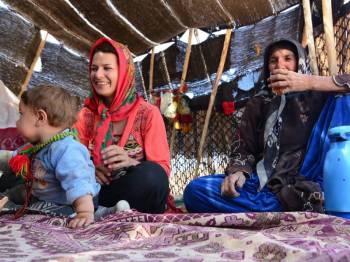 14D/13N
14D/13N
 4D/3N
4D/3N
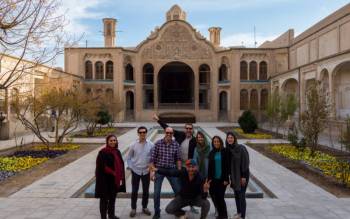 15D/14N
15D/14N
Safari Trip from Deep Deserts, Iran
Tehran - Kashan - Isfahan - Yazd - Shiraz
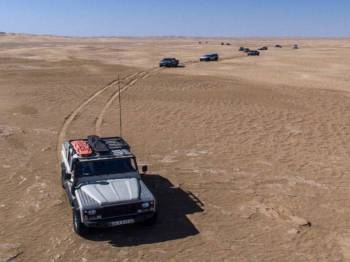 10D/9N
10D/9N
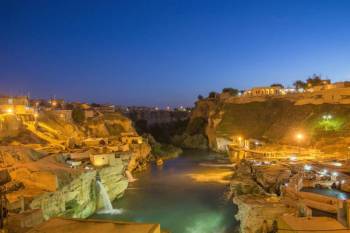 12D/11N
12D/11N
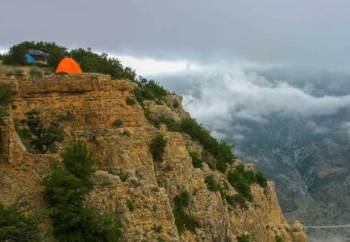 4D/3N
4D/3N
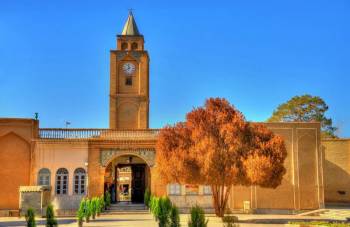 11D/10N
11D/10N
Explore the Most Spectacular Cities of I..
Tehran - Kashan - Isfahan - Shiraz - Kerman
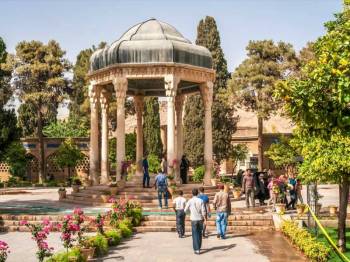 1D/0N
1D/0N
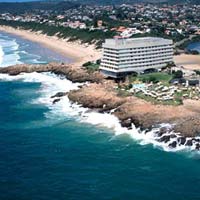 14D/13N
14D/13N
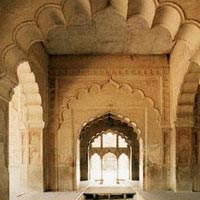 14D/13N
14D/13N
Rajasthan - Land of Kings & Queens Tour
New Delhi - Agra - Jaipur - Ranthambore - Udaipur - Jodhpur - Bundi - Chittorgarh -..
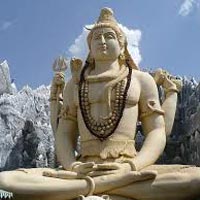 14D/13N
14D/13N
 14D/13N
14D/13N
New Delhi - Agra - Gwalior - Bhopal - Indore - Mumbai - Chhatarpur - Tikamgarh - Au..
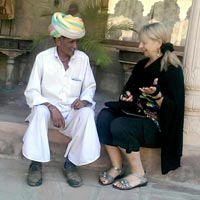 14D/13N
14D/13N
New Delhi - Mandawa - Bikaner - Gajner - Jodhpur - Kumbhalgarh - Chittorgarh - Bund..
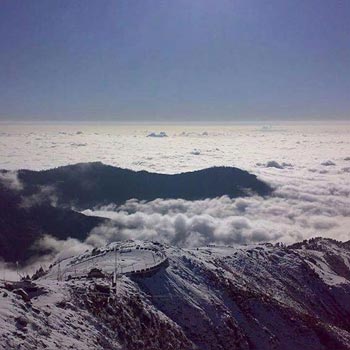 14D/13N
14D/13N
Guwahati - Shillong - Tawang - Kaziranga - Kohima - Imphal - Silchar - Cherrapunji ..
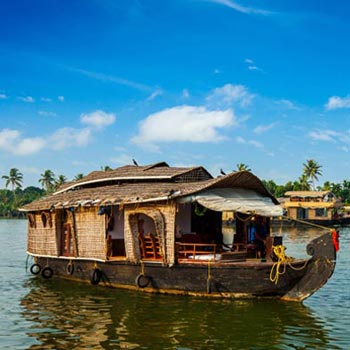 14D/13N
14D/13N
Munnar - Thekkady - Alleppey - Thiruvananthapuram - Kovalam - Kanyakumari - Kochi
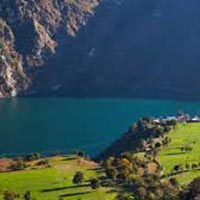 14D/13N
14D/13N
New Delhi - Shimla - Dharamshala - Dalhousie - Chandigarh City
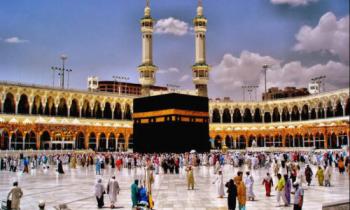 14D/13N
14D/13N
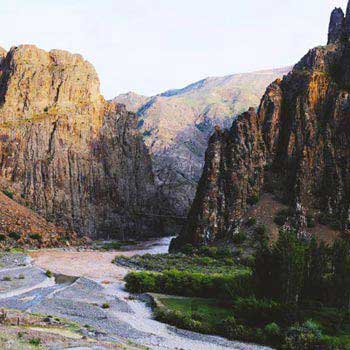 10D/9N
10D/9N
 13D/12N
13D/12N
GO DEEP IN THE DESERTS OF IRAN
Tehran - Isfahan - Kashan - Yazd - Kerman - Tabas - Varzaneh,
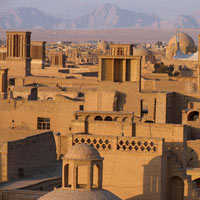 8D/7N
8D/7N
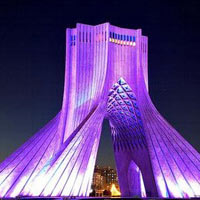 9D/8N
9D/8N
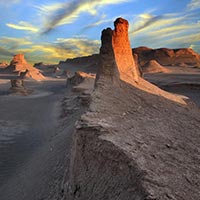 11D/10N
11D/10N
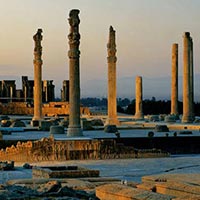 8D/7N
8D/7N
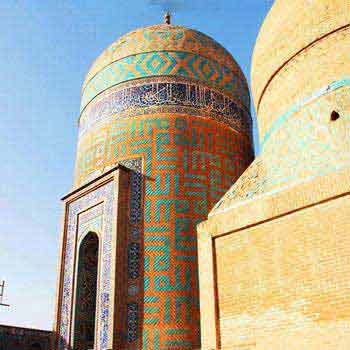 15D/14N
15D/14N
A Complete Journey of the Legendary Pers..
Tabriz - Tehran - Hamadan - Isfahan - Shiraz
 10D/9N
10D/9N